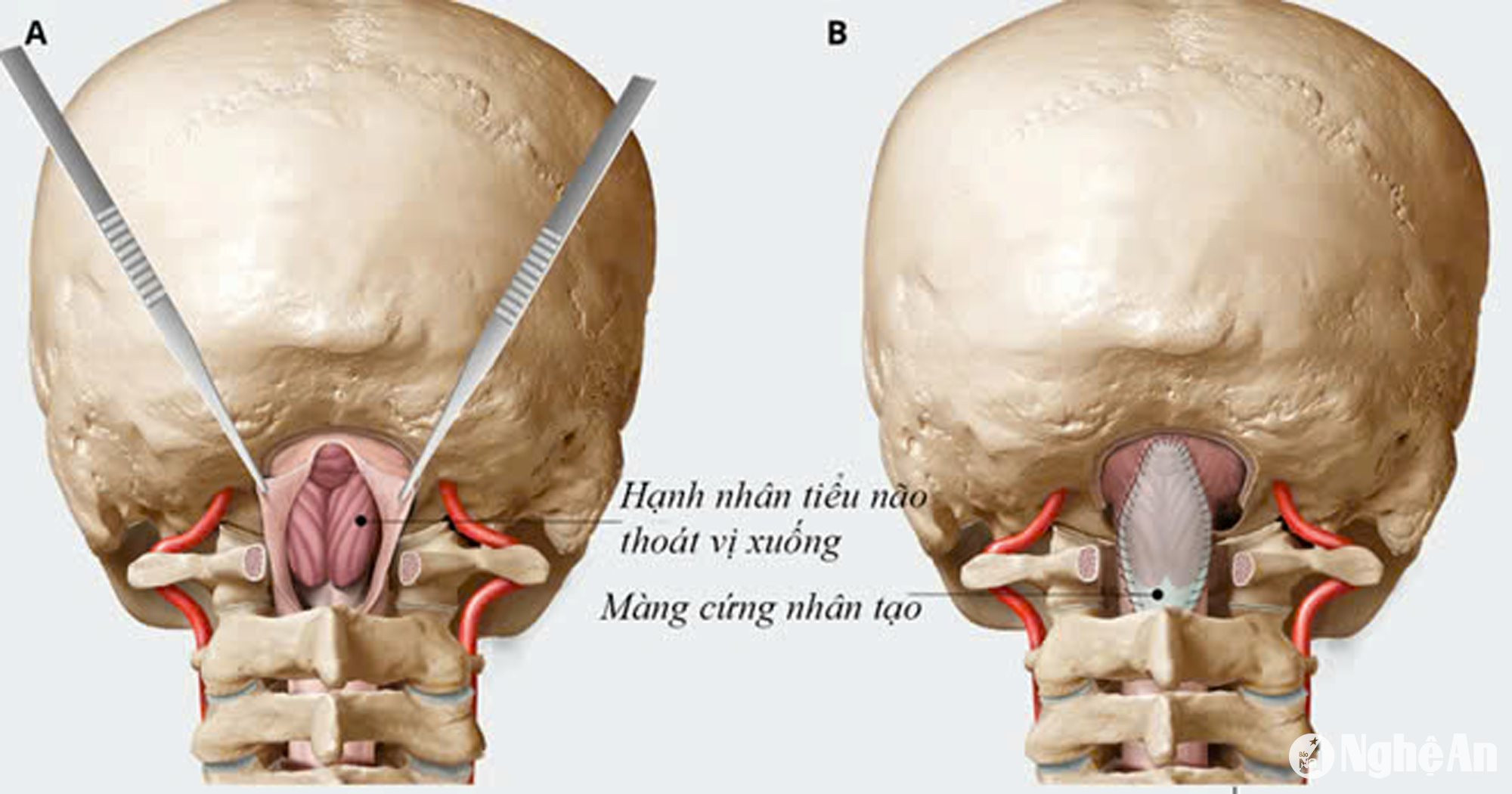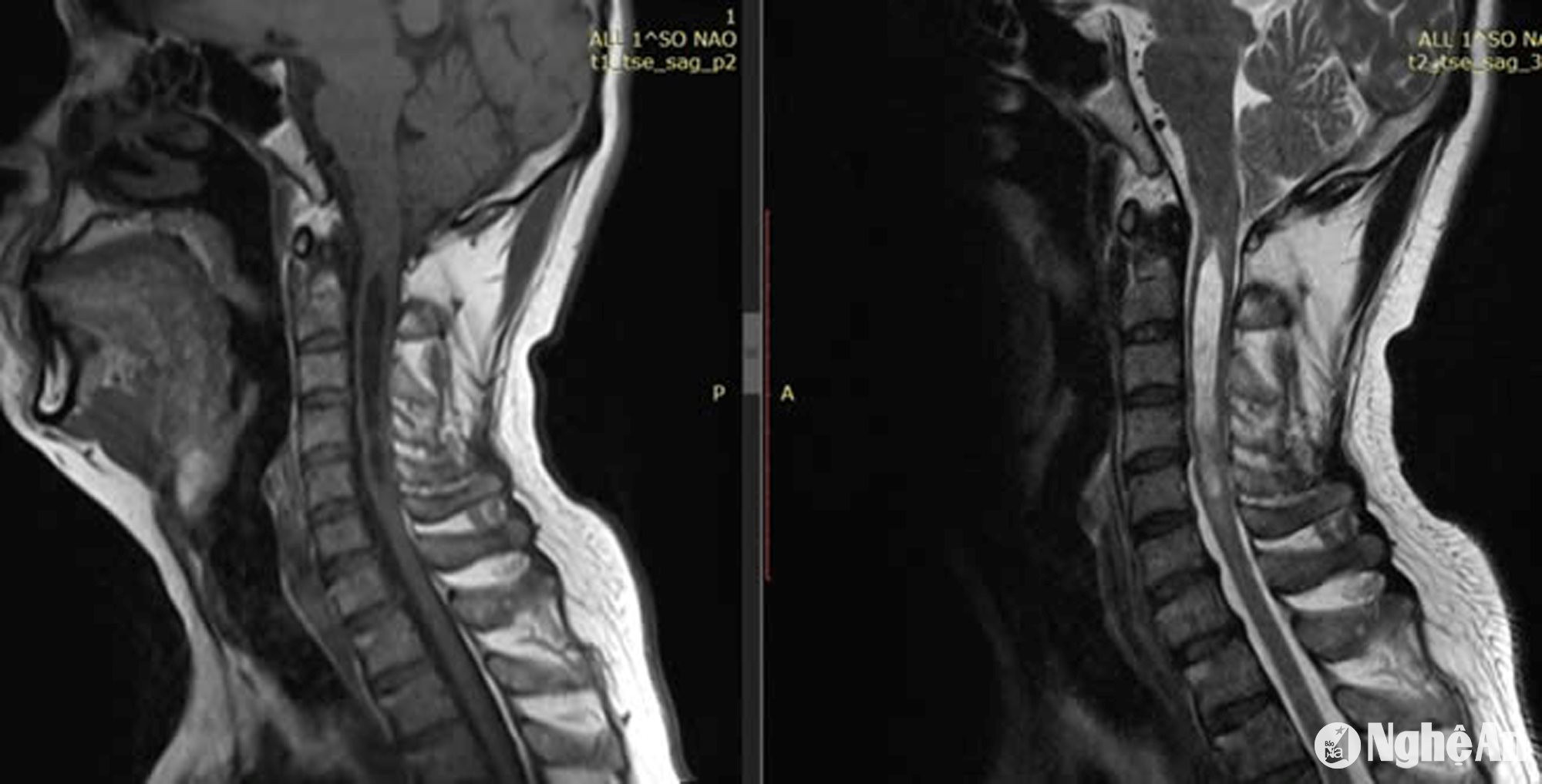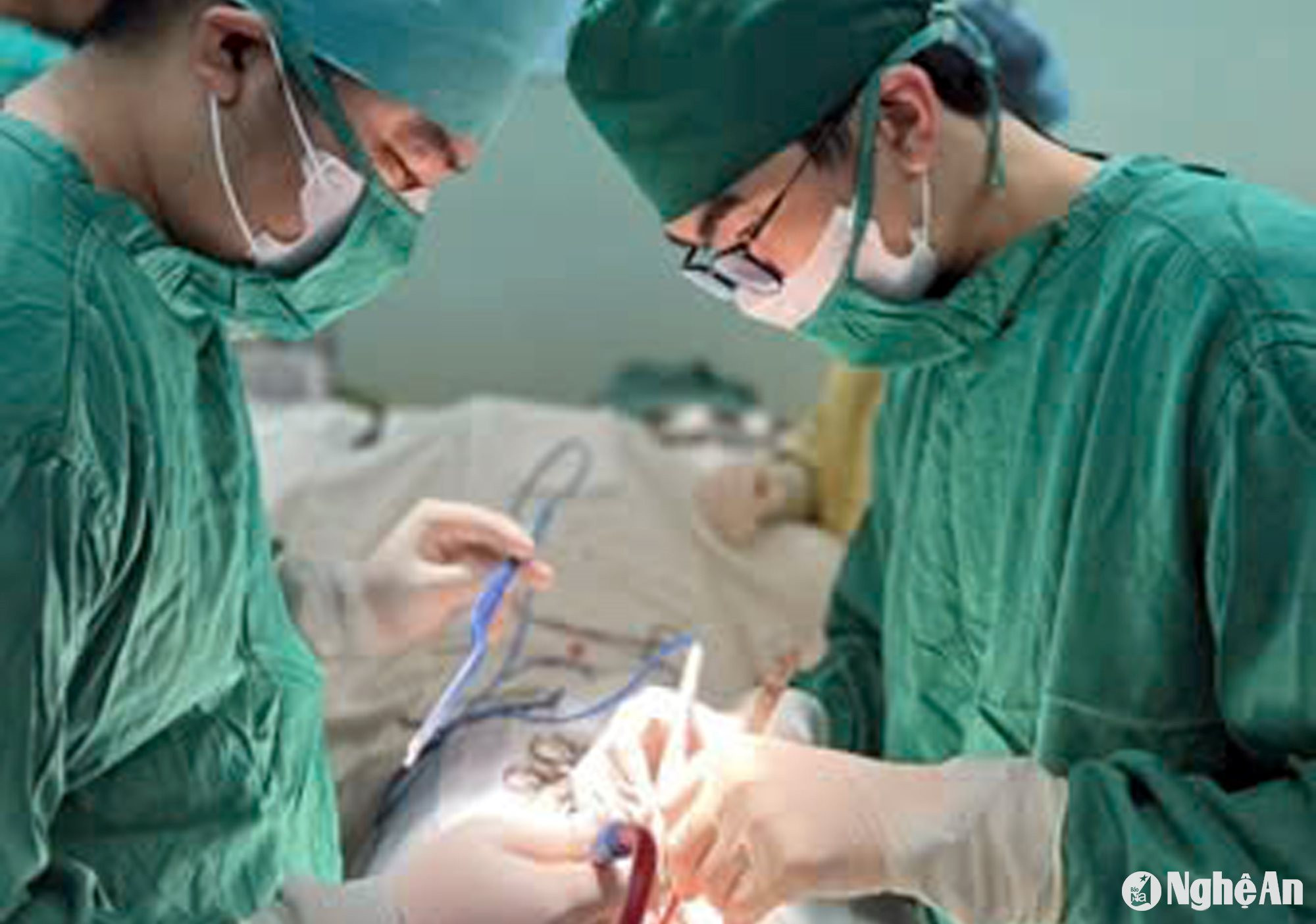Nghe An Friendship General Hospital successfully treated a patient with the rare Arnold-Chiari syndrome.
Recently, the Department of Spinal Neurosurgery at Nghe An Friendship General Hospital received and treated patient H.D.B, 42 years old, suffering from the rare Arnold Chiari Syndrome.
Accordingly, about three months prior to hospitalization, the patient began experiencing headaches and neck pain, followed by numbness, weakness, and muscle spasms in the right hand. The patient self-medicated and sought treatment in various places but without improvement. The symptoms worsened progressively; the patient could no longer hold a bowl to eat, write, or perform their driving instruction duties.

On July 20, 2024, the patient went for a check-up and was transferred to Nghe An Friendship General Hospital. After examination and consultation, the patient was diagnosed by doctors with Arnold Chiari syndrome, a very rare syndrome (occurrence rate of 1 in 10,000 people).
Arnold Chiari syndrome occurs when the cerebellar tonsils herniate through the cranial foramen magnum into the cervical spine, causing compression of the brain and spinal cord. If left undetected and untreated, patients with this syndrome may suffer severe damage such as motor paralysis, sensory disturbances, lifelong disability, or even death.

On July 24th, the surgical team led by Master's degree holder and doctor Ngo Van Thanh performed surgery on the patient using the occipitocervical reconstruction method. The surgery lasted more than two hours, involving a very complex cranial surgery combined with high cervical spine surgery, because this location contains many important and dangerous components such as: cerebellum, fourth ventricle, PICA artery, vertebral artery, cervical spinal cord…
During the surgery, a portion of the skull bone in the posterior fossa was removed, along with the posterior arch of the C1 vertebra, which was cut to free the cervical spine. The dura mater was opened to remove adhesions, a portion of the cerebellar tonsils was cut to relieve compression, and the dura mater was reconstructed using fascia and an artificial dura mater.

After 8 days of post-operative treatment, the patient's condition improved significantly, hand muscle strength increased, numbness and cramping decreased, the patient was able to hold a pen to write, hold a bowl to eat rice independently, the patient was in good spirits and was discharged from the hospital.
Nowadays, diseases of the brain and spine are becoming increasingly complex. Early detection, accurate diagnosis, and the selection of appropriate treatment methods have contributed to improving the quality of life for patients.
Surgery for patients with Arnold-Chiari syndrome is a complex technique, requiring experienced and highly specialized doctors and modern equipment to achieve the best results. The Department of Spinal Neurosurgery at Nghe An Friendship General Hospital is always a reputable and reliable choice for patients seeking examination and treatment.



